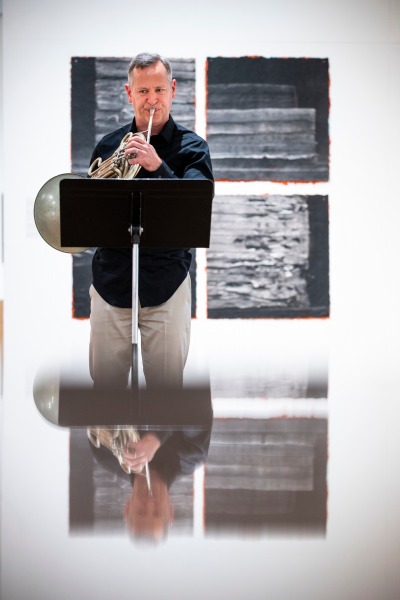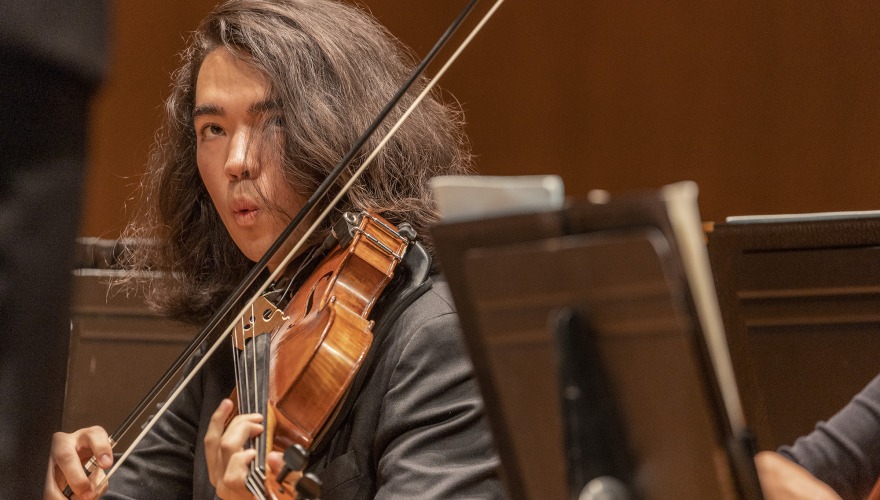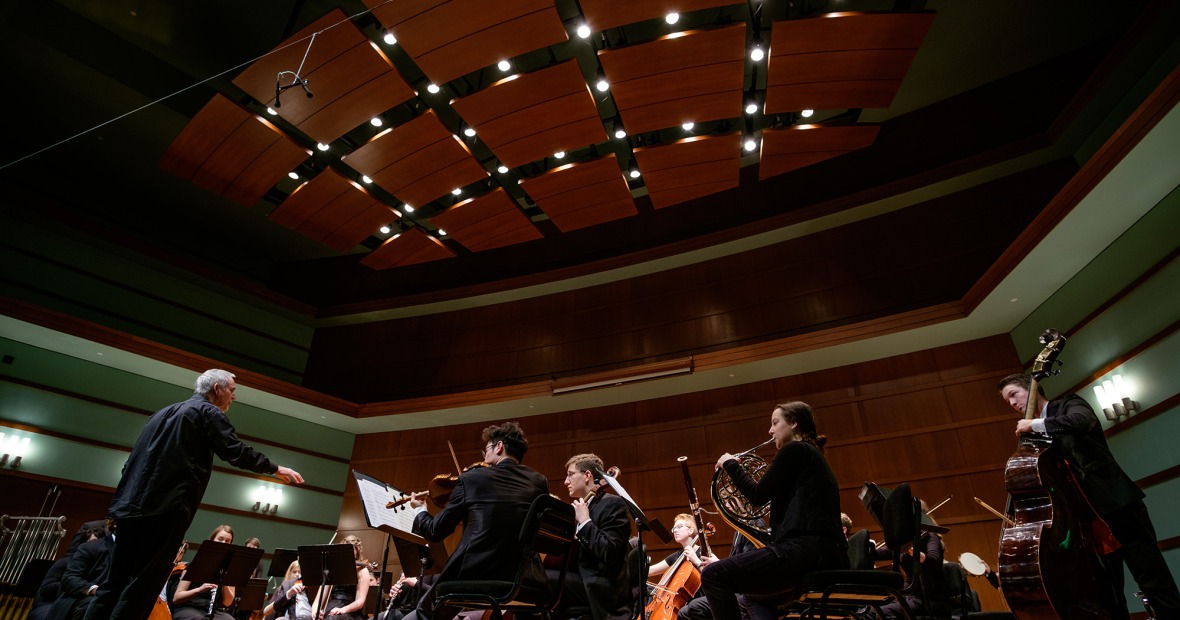A Day in the Life of the Grinnell Symphony Orchestra Conductor
From Farming to French Horn

On a recent Saturday, Professor of Music Eric McIntyre started the day working with Grinnell students who had come to help with the turkeys he raises on his farm near Grinnell. Later, he jumped in the car and drove to Des Moines, where he delivered a preconcert lecture for the Des Moines Symphony. In the evening, he took his place in the French horn section to perform with the ensemble.
As a professional musician, composer, farmer, and director of the Grinnell Symphony Orchestra, McIntyre’s days are demanding and varied, and that’s exactly how he likes it.
“I’m busy all the time,” he says.
McIntyre is in his 21st year as conductor of the Grinnell Symphony Orchestra. The orchestra welcomes students from across campus, and only a few are music majors. There are many strong musicians at Grinnell, McIntyre says, and although music isn’t what they want to do as a profession, it is something they enjoy.
“It’s part of their life and they want to maintain that contact, which I think is fantastic,” he says.
The orchestra welcomes many visiting artists, including Metropolitan Opera stars, internationally respected soloists, an Italian conductor who also teaches at the Mozarteum in Salzburg, and a guest conductor from South Africa.
The orchestra rehearses two times each week, with an additional sectional rehearsal in the evening. Special gatherings and events help build a strong community. Students gather for an orchestra dinner in the dining hall between the Wednesday afternoon rehearsal and the evening sectionals.

In addition, McIntyre occasionally invites them to visit his farm after concerts. “When I have an open farm, as I call it, it gives the students a chance to get off campus and to do some animal therapy,” he says. Students who are missing pets at home especially love interacting with his dogs and cats.
For McIntyre, the Liberal Arts in Prison Program offers one of the most rewarding performance opportunities for the orchestra. Before the pandemic, the ensemble traveled to the nearby Newton Correctional Facility to perform a concert every year or so. McIntyre hopes to restart the practice soon, although he adds that getting through security with all the instruments and music stands is a long process.
McIntyre vividly remembers his first Grinnell concert at the prison. “I think there were 150 men at the performance and they sat in silence and just absorbed the whole thing,” he says. “It was remarkable. Afterwards, I was told by someone on the staff that was the best thing that had happened there, ever.”
He adds, “I always tell the students before we go, ‘This is probably the best audience that you’re ever going to play for. … A lot of the men just sit with their eyes closed and absorb it.”
McIntyre’s schedule is a challenging one, but he doesn’t want to change that. “When I was a doctoral student, I went to a performance by one of my major professors, and someone asked him, ‘Where does the inspiration come from as a composer? Does it descend from the heavens or whatever?’ He looked at the guy and he said, ‘Deadlines.’”
McIntyre adds, “I think the guy was disappointed, but I loved it. I was like, ‘That is true.’”

